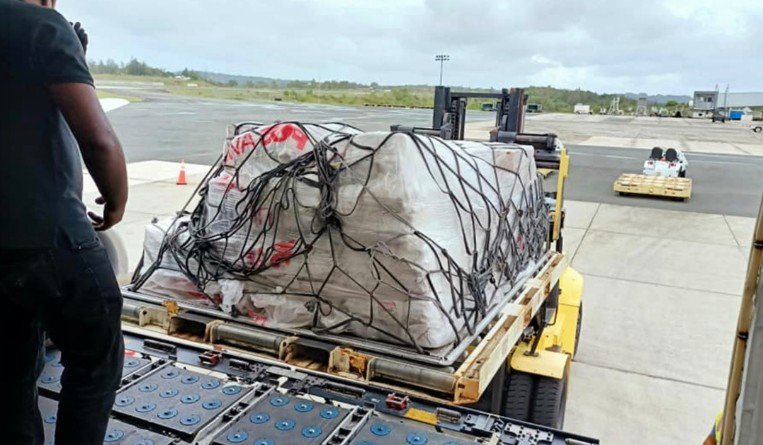Kota Kinabalu International Airport, Malaysia’s second busiest, will see a boost in air cargo operations with planned expansions in its hub.
Mohamed Yunos Bin Mohamed Ishak, chairman of Kuala Lumpur-based My Jet Xpress Airlines, said the carrier is currently working with the local government of Sabah on a planned cargo facility at the airport.
During a recent briefing for its newly-launched partnership with Hong Kong-based Kerry Logistics Network (KLN) for Kota Kinabalu-Macau operations, the Malaysian cargo airline also announced expansion of its fleet citing increased demand in the region.
The carrier said it will add three more freighters to its fleet, including one Boeing 737-800 freighter, which it expects to arrive “by January or February.”
“With this growth, we see the need of expanding our fleet and in the couple of months from now, we intend to expand the fleet by three more aircraft,” Ishak said. “With this coming of a new fleet of aircraft, we’ll be able to establish new routes, provide much-needed capacity at a time when larger airlines are struggling to do so.”
Along with this expansion, the cargo airline also sees the need to boost its operation on the ground – with sights set on Kota Kinabalu International Airport located at the capital of Malaysia’s Sabah state in the northern part of the island of Borneo.
“We would just not grow in the air, we need to grow our services – our facilities on the ground,” the My Jet Xpress chief added. “Kota Kinabalu Airport is the right place to be expanded for the cargo facility.”
“We are embarking into this new project with the approval of the local government here and with the blessing of the authorities, we hope to have the ground for us to build a multi, international cargo warehouse facility equipped with cold room facilities,” Ishak added.
He noted that seafood products are the main exports of Sabah and the region due to its location.
“We hope this meeting will be the point where we will be embarking on another step. Soon, maybe 2022, we hope to accomplish all these expansion projects,” he added.
Meanwhile, the companies also cited “exponential” ecommerce growth in the region as the push behind the partnership between KLN and My Jet Xpress Airlines.
The idea of using Macau International Airport as a transit hub was introduced to support KLN’s ecommerce customers who were struggling at the height of the Covid-19 pandemic to obtain freight capacity from Macau into eastern Malaysia and Indonesia.
Kerry Logistics said separately that “a transit hub was subsequently established in Macau, [which was] chosen for three reasons: its proximity to the customer’s distribution centre, its capability to allow carriage of products with batteries, and the efficiency of its customs clearance process.”
A KLN representative said from five flights a month, the solution now provides seven to eight flights per week.
During the launch event of the partnership, Mathieu Renard Biron, managing director, global freight forwarding, for Kerry Logistics told attendees that Southeast Asia is the “next big thing” in terms of ecommerce, which will be driven by an expanding middle class in the region.
“Asia today constitutes 60% of the global ecommerce market,” Biron said. “Southeast Asia during 2020 has increased its ecommerce volume by 39%. Southeast Asia is understood to be the next big thing in terms of ecommerce, whether it is the growth in the population, the smartphone, digital economy or access to smartphones, consumers have been growing in Southeast Asia.”
Nonetheless, he noted existing logistics challenges on servicing the region including geography, high delivery cost and time demands, all of which drive the need for partnerships like the one with My Jet Xpress.
“The growth of ecommerce consumption in Southeast Asia is exponential and every corporation takes some time to adopt, including the right tools, solutions to meet such a demand and we don’t have that time. What happened during Covid-19 forced us to find agile solutions, now.”
Moving forward, Biron said Southeast Asia will continue to be a big and growing market for ecommerce.
“Southeast Asia is the next big thing. It will become a major market for China, only behind Europe and the U.S.,” the Kerry executive added.
Charlee C. Delavin



